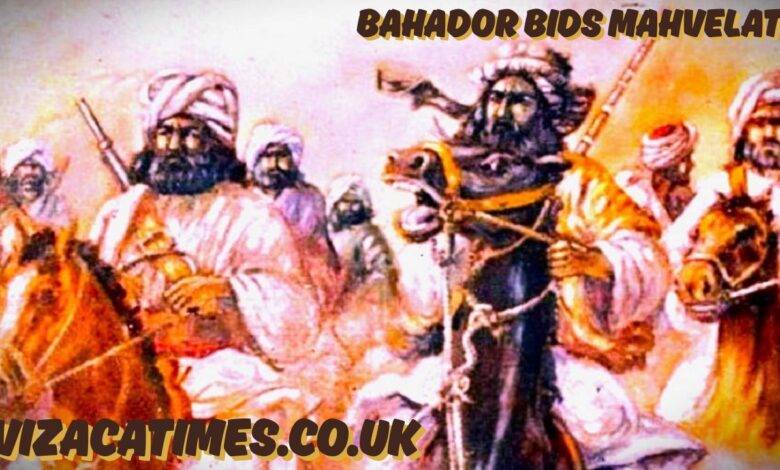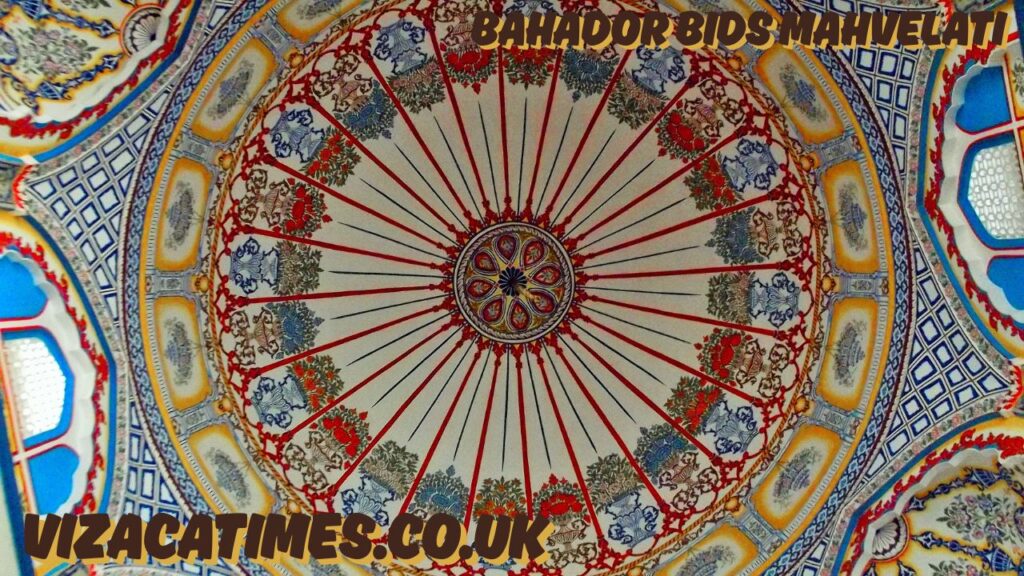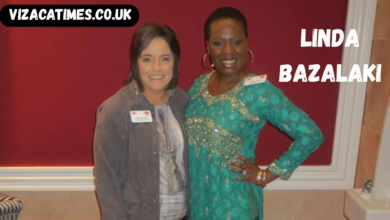Bahador Bids Mahvelati, Beyond the Standard?? A Deeper Exploration of Character, Culture, and Influence

Introduction: Who is Bahador Bids Mahvelati??
When a name starts circulating in both cultural and intellectual circles, it often signals the emergence of a figure whose significance runs deeper than surface recognition. “Bahador Bids Mahvelati” is one such name—evocative, enigmatic, and filled with layers of potential meaning. But who is Bahador Bids Mahvelati? Is he a thought leader, a cultural bridge, or a symbol of something larger in the changing global landscape?
In this comprehensive article, we go beyond the surface to explore the persona, the significance, and the conversations surrounding “bahador bids mahvelati,” analyzing what lies beyond the standard interpretations.
Cultural Origin and Etymology of Bahador Bids Mahvelati

To understand the depth of any name or persona, one must begin with origins. “Bahador” is a term of Persian origin, often used historically to denote a brave or valiant individual—someone who fights for ideals or protects values. “Bids,” although less common, might connect to the Persian word for “willow,” a tree often symbolizing resilience and flexibility. “Mahvelati” possibly refers to a regional or familial lineage, implying roots in Mahvelat, a place in Iran known for its agricultural strength and cultural depth.
So, the name “Bahador Bids Mahvelati” could be interpreted symbolically as “the resilient warrior of Mahvelat.” Already, we begin to see the richness of cultural and symbolic resonance in the name.
The Man Behind the Name: Symbol or Real Person?

Is Bahador Bids Mahvelati a real person or a metaphorical construct used in social or academic discourse? This question is frequently posed. While hard data about the individual may be sparse, references to this name have appeared in discussions that touch on philosophy, diasporic identity, activism, and modern ethics.
If Bahador exists in the literal sense, then he may be a quiet yet impactful presence—someone working behind the scenes in cultural, political, or philosophical capacities. If the name is symbolic, then “Bahador Bids Mahvelati” functions as a stand-in for a kind of ideal: someone who pushes boundaries while remaining rooted in history and honor.
Beyond the Standard?? — A Framework of Analysis
The phrase “Beyond the Standard??” attached to Bahador Bids Mahvelati is not incidental. It serves as a thematic framework. What does it mean to move beyond the standard? In academic, social, and philosophical terms, this can mean rejecting mediocrity, challenging norms, and reimagining paradigms.
Bahador Bids Mahvelati is thus seen as someone who refuses to accept default systems. Whether in leadership, education, ethics, or identity formation, the figure seems to invite people to think deeply, reject shallow norms, and embrace complexity. It’s about refusing to be confined by pre-existing narratives and daring to define new frontiers.
Intellectual Echoes: A Thinker of Crossroads?
One recurring theme associated with Bahador Bids Mahvelati is “the crossroads.” This metaphor applies to global citizens navigating identity, values, and truth in an era of rapid change. Those who have referenced Bahador’s ideas often link him to discourse around modern hybridity, the fusion of Eastern and Western philosophy, and the importance of nuance in political thought.
In this light, Bahador becomes more than a man; he becomes a lens through which we examine choices—between tradition and innovation, individuality and community, idealism and realism.
Ethics and Integrity in a Changing World
“Beyond the Standard” also evokes moral excellence—refusing to compromise ethics for convenience. Some have cited Bahador Bids Mahvelati in the context of ethical debates involving transparency, public accountability, and philosophical leadership. Whether he’s a corporate thinker or a social philosopher, the emphasis remains consistent: doing the right thing, even when it is unpopular.
In many ways, this mirrors classical philosophical traditions while applying them in postmodern, global contexts. The idea is not just to challenge what is—but to suggest what ought to be.
Influence Across Spheres: Academia, Culture, and Diaspora
If we trace the name across digital and intellectual landscapes, we see that the legacy—whether symbolic or real—of Bahador Bids Mahvelati has touched various communities. In academic articles, philosophical essays, and even creative storytelling, the character is invoked to represent a high standard of thought, conviction, and intellectual clarity.
Diasporic communities, in particular, have found value in referencing Bahador Bids Mahvelati as a figure who honors origins while imagining futures. He symbolizes pride in one’s heritage without being confined by it—a balance between memory and vision.
The Modern Archetype: Bahador as a Role Model
Just as historical figures like Socrates or Rumi transcend their era to become archetypes, Bahador Bids Mahvelati might be moving into such terrain. Young thinkers, aspiring leaders, and even educators sometimes refer to him as a model of intellectual courage—someone who stands firm but stays open, who critiques the system while working to improve it.
This duality—strength and humility, conviction and curiosity—is what makes Bahador Bids Mahvelati a compelling figure for those looking for inspiration beyond superficial fame.
Critics and Controversies: A Figure That Divides?
Any influential or symbolic figure comes with dissent. Not everyone agrees on who or what Bahador Bids Mahvelati represents. Some critics argue that the concept is too abstract, that attaching too much idealism to one name limits critical engagement. Others view him as an elitist figure—someone invoked in spaces that feel exclusive or inaccessible.
And yet, that very critique affirms the relevance of the figure. Whether as a real individual or an abstract ideal, Bahador provokes discussion. He forces us to ask: What standards do we hold ourselves to? And why?
Conclusion: Bahador Bids Mahvelati—A Name, A Question, A Standard
Whether you believe Bahador Bids Mahvelati is a real person or a powerful metaphor, there’s no denying his impact on those who engage with the name. The attachment of “Beyond the Standard??” speaks volumes—not only about the man or the idea but about the challenge he represents to all of us.
He asks us to step up.
To think harder.
To act better.
And above all, to never settle for “standard” when something higher is possible.
FAQs about Bahador Bids Mahvelati
Q1: Is Bahador Bids Mahvelati a real person?
A: There is ongoing debate. Some treat him as a real intellectual figure, while others consider him a symbolic ideal representing excellence and resilience.
Q2: What does “Beyond the Standard??” mean in this context?
A: It refers to challenging the status quo—thinking, living, and leading beyond mediocrity or default societal norms.
Q3: What fields is Bahador Bids Mahvelati associated with?
A: Philosophy, ethics, diaspora studies, leadership, and cultural thought are often connected to his name.
Q4: Why is Bahador Bids Mahvelati considered influential?
A: He represents the archetype of the ethical leader and thoughtful intellectual—someone who respects the past while innovating toward the future.
Q5: Can anyone adopt the principles of Bahador Bids Mahvelati?
A: Absolutely. The strength of the name lies in its invitation to embody deeper values—courage, resilience, and intellectual integrity.
Also read : Arthur Mornington, ?? – Exploring the Life, Vision, and Legacy of Arthur Mornington



